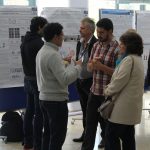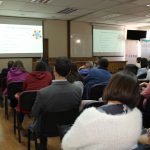Event in Chile brought together experts for further studies in nanotechnology and Cancer Treatment

An interesting encounter with experts was what was experienced in: “NANOTECHNOLOGY IN DIAGNOSIS AND TREATMENT OF CANCER, SYMPOSIUM 2018” an event hosted by the Center for advanced studies of chronic diseases (ACCDiS ) next to the Centre for studies in exercise, Metabolism and Cancer (CEMC), event that brought together researchers, health professionals, students and invited experts who gave their knowledge and experience to the audience.
In the event it delved into important topics for science such as nanotechnology and vesicles, called exosomes, the role that these meet in the development of the disease and metastasis process, seeing its potential therapeutic use.
“Nanotechnology in combination with the study of the exosomes, It is the medicine of the future and a huge window of possibilities to new biomedical applications against cancer and the generation of more targeted target therapies". said the Dr. Andrew Quest, principal investigator of ACCDiS online ¨the inflammation in angiogenesis, cell migration and the metastasis¨ who together a Marcelo Kogan, also main researcher of ACCDiS, In addition to organize this space they presented results of their studies in the area.
The objective of many of these investigations, It links nanotechnology and exosomes, It is to increase the amount of drugs coming to the specific target and avoid, to the extent possible, the harmful side effects. This, considering that current drugs are little specific and can cause cytotoxicity.
The goal of ACCDiS with this Symposium and fostering collaboration between local and international expert groups, to generate new lines of research and further studies in the existing, This is a strong projection that the Center has to generate more events like this.
It is worth to emphasize that this symposium was particularly the financing of the study of the Dr group. Andrew Quest and the Fondecyt project of international collaboration that manages. Is expected to return to this meeting, given the relevance of studies and advances in the diagnosis and treatment of cancer; you will be subject to the availability of networks and international collaborations, as well as the funding from specialized institutions in the health and science in Chile support institutions to contribute.



